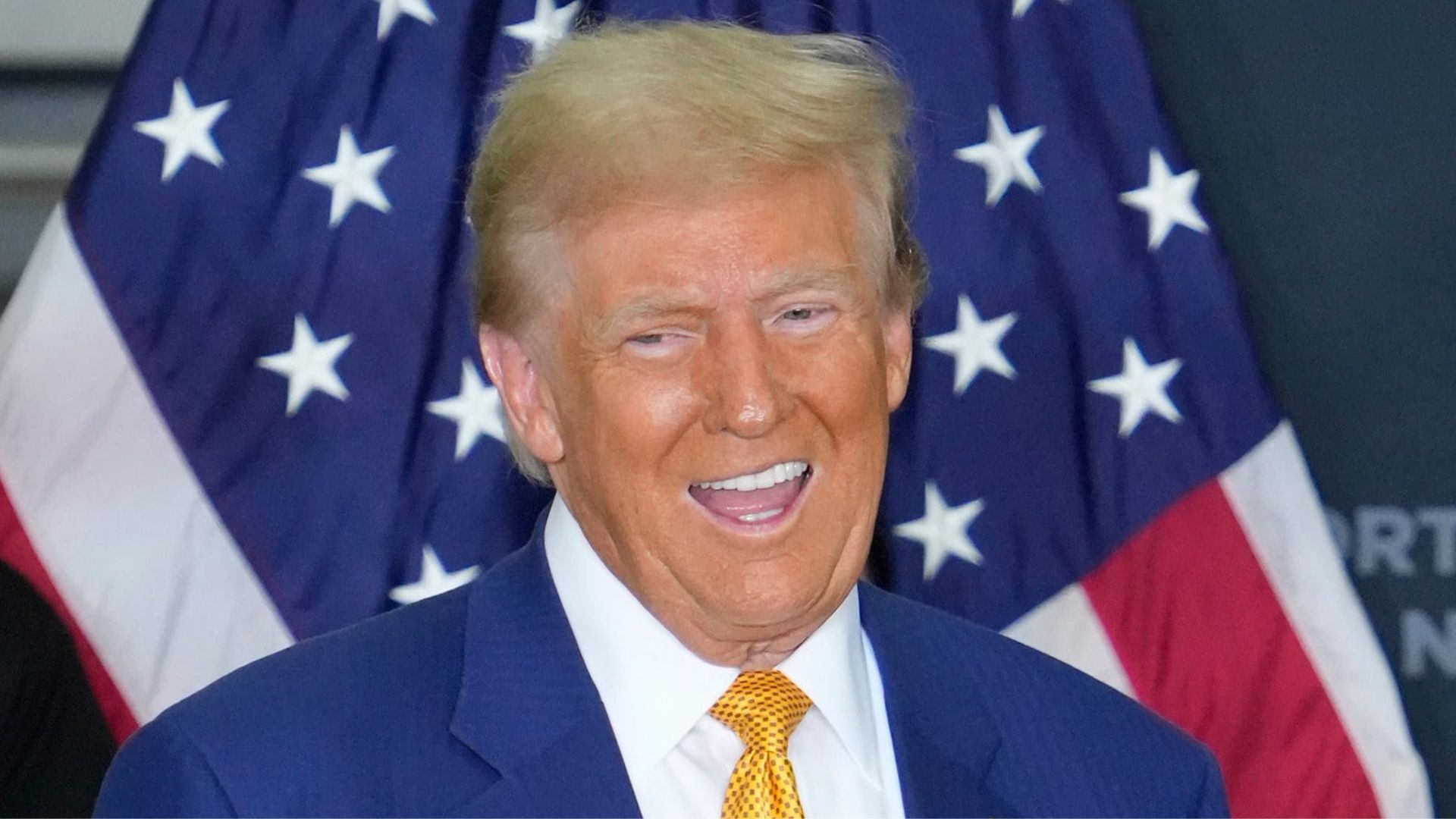
President Donald Trump announced Sunday that his administration’s tariff policies could result in major income tax reductions for many Americans, particularly for workers earning under $200,000 a year.
“When Tariffs cut in, many people’s Income Taxes will be substantially reduced, maybe even completely eliminated,” Trump wrote in a Truth Social post at 6:06 a.m.
“Focus will be on people making less than $200,000 a year.”
Trump’s Sovereign Wealth Fund: What Could It Mean For Your Money?
Trump expanded on the message, highlighting the economic impact of the tariffs on job creation and manufacturing.
“Also, massive numbers of jobs are already being created, with new plants and factories currently being built or planned. It will be a BONANZA FOR AMERICA!!! THE EXTERNAL REVENUE SERVICE IS HAPPENING!!!” Trump posted.
Trump says income taxes may be eliminated for people making less than $200k.
IT WILL BE A BONANZA FOR AMERICA
THE EXTERNAL REVENUE SERVICE IS HAPPENING pic.twitter.com/1CDRsEkH8N
— Libs of TikTok (@libsoftiktok) April 27, 2025
This Could Be the Most Important Video Gun Owners Watch All Year
The reference to an “external revenue service” is not new.
Trump has previously used the term to promote the idea of funding government operations through tariffs collected on foreign goods, thereby reducing Americans’ reliance on income taxes.
His renewed emphasis on the concept comes amid ongoing criticism from opponents who argue that his trade policies risk destabilizing financial markets and increasing costs for consumers.
🚨 JUST IN: Trump says a TOTAL tax cut could be coming.
“We’re gonna cut taxes for the people of this country. It’ll take a little while… it’s possible we’ll do a complete tax cut. I think the tariffs will be enough to cut all of the income tax.”pic.twitter.com/5eRjIUYE5Q
— Eric Daugherty (@EricLDaugh) April 27, 2025
On April 2, the Trump administration enacted a broad set of tariffs targeting a wide range of imports.
A 10 percent tariff was imposed on nearly all goods entering the United States.
Specific countries were subject to higher rates, including a 26 percent tariff on imports from India and a significant 145 percent tariff on Chinese goods.
In the weeks following the tariff rollout, the administration has adjusted its approach.
Some measures have been temporarily paused to allow for trade negotiations.
A 90-day suspension was announced for reciprocal tariffs, during which the United States entered into talks with numerous countries seeking new or revised trade agreements.
Meanwhile, the administration has concentrated the bulk of its tariff efforts on China.
The policy shift comes as financial markets respond to developments in the administration’s trade strategy.
In recent weeks, Wall Street has closely followed remarks from both President Trump and Treasury Secretary Scott Bessent, with market averages fluctuating based on the latest announcements.
.@SecScottBessent: “There was a story ten days ago that said this is the worst April for the stock market since the Great Depression. Ten days later, the Nasdaq is now up on the month of April, and I haven’t seen a story that says ‘stock market has biggest bounce back ever.’” pic.twitter.com/gbU68ocKV8
— Rapid Response 47 (@RapidResponse47) April 27, 2025
The bond market, which plays a critical role in financing the U.S. national debt, has also experienced volatility attributed to tariff policies.
Some financial analysts have suggested that concerns over bond market stability influenced the administration’s decision to temporarily scale back some aspects of its tariff strategy.
Despite market reactions, President Trump has remained steadfast in promoting the broader economic benefits of his trade policy.
The administration has argued that tariffs serve the dual purpose of protecting American industries and generating alternative revenue streams that could reduce the federal government’s reliance on income tax collections.
The long-term impact of the tariff policies and the extent to which they will influence income tax reductions remains under close observation as trade negotiations continue and new economic data is released.
Connect with Vetted Off-Duty Cops to Instantly Fulfill Your Security Needs

![Trump Roasts Fox News Reporter, Dishes Out Career Advice [WATCH]](https://www.right2024.com/wp-content/uploads/2025/03/1742529319_Trump-Roasts-Fox-News-Reporter-Dishes-Out-Career-Advice-WATCH-750x375.jpg)
![Reality Hits Adam Schiff in San Francisco—It’s Not Pretty for Democrats [WATCH]](https://www.right2024.com/wp-content/uploads/2025/04/Reality-Hits-Adam-Schiff-in-San-Francisco—Its-Not-Pretty-for-350x250.jpg)

![Trump’s White House Trolls Illegal Alien Gangs With Hilariously Brutal Video [WATCH]](https://www.right2024.com/wp-content/uploads/2025/03/1742261427_Trumps-White-House-Trolls-Illegal-Alien-Gangs-With-Hilariously-Brutal-350x250.jpg)

![James Comer Hints at the Epic Behind-the-Scenes Effort Targeting the Deep State [WATCH]](https://www.right2024.com/wp-content/uploads/2025/04/James-Comer-Hints-at-the-Epic-Behind-the-Scenes-Effort-Targeting-the-350x250.jpg)









